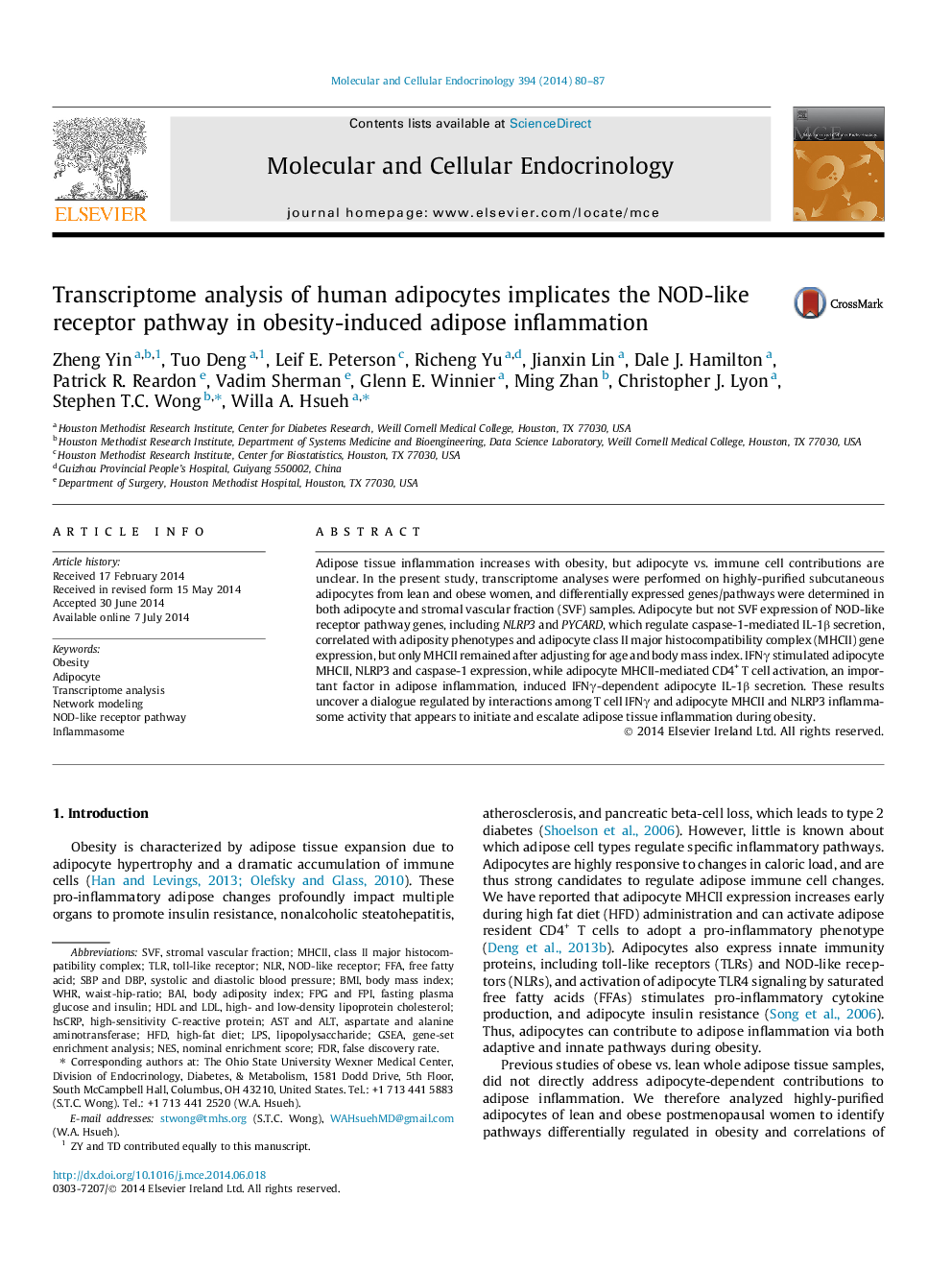| Article ID | Journal | Published Year | Pages | File Type |
|---|---|---|---|---|
| 2195934 | Molecular and Cellular Endocrinology | 2014 | 8 Pages |
•NLRP3 inflammasome expression increases in adipocytes but not SVF during obesity.•After adjusting for BMI, inflammasome genes correlate only with adipocyte MHCII.•IFNγ regulates both adipocyte MHCII and NLRP3 expression.•CD4 T cell activation via adipocyte MHCII induces IFNγ-dependent NLRP3 expression.•This interaction appears likely to impact adipose and systemic inflammation.
Adipose tissue inflammation increases with obesity, but adipocyte vs. immune cell contributions are unclear. In the present study, transcriptome analyses were performed on highly-purified subcutaneous adipocytes from lean and obese women, and differentially expressed genes/pathways were determined in both adipocyte and stromal vascular fraction (SVF) samples. Adipocyte but not SVF expression of NOD-like receptor pathway genes, including NLRP3 and PYCARD, which regulate caspase-1-mediated IL-1β secretion, correlated with adiposity phenotypes and adipocyte class II major histocompatibility complex (MHCII) gene expression, but only MHCII remained after adjusting for age and body mass index. IFNγ stimulated adipocyte MHCII, NLRP3 and caspase-1 expression, while adipocyte MHCII-mediated CD4+ T cell activation, an important factor in adipose inflammation, induced IFNγ-dependent adipocyte IL-1β secretion. These results uncover a dialogue regulated by interactions among T cell IFNγ and adipocyte MHCII and NLRP3 inflammasome activity that appears to initiate and escalate adipose tissue inflammation during obesity.
